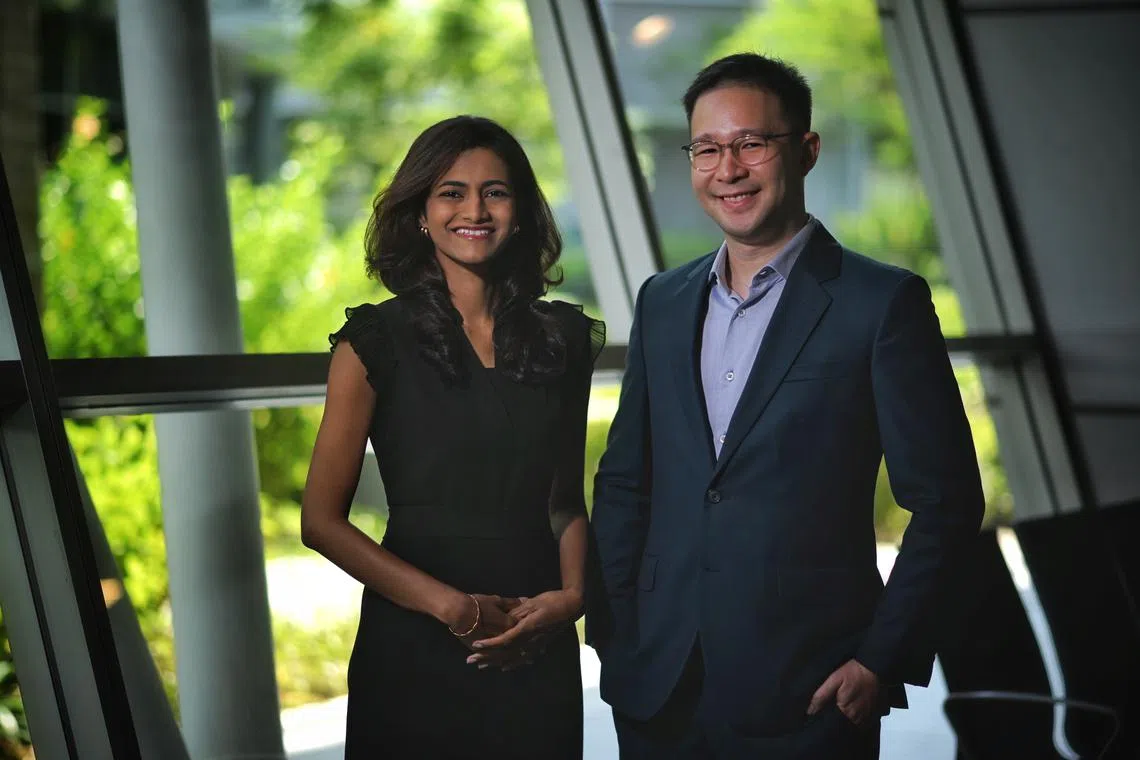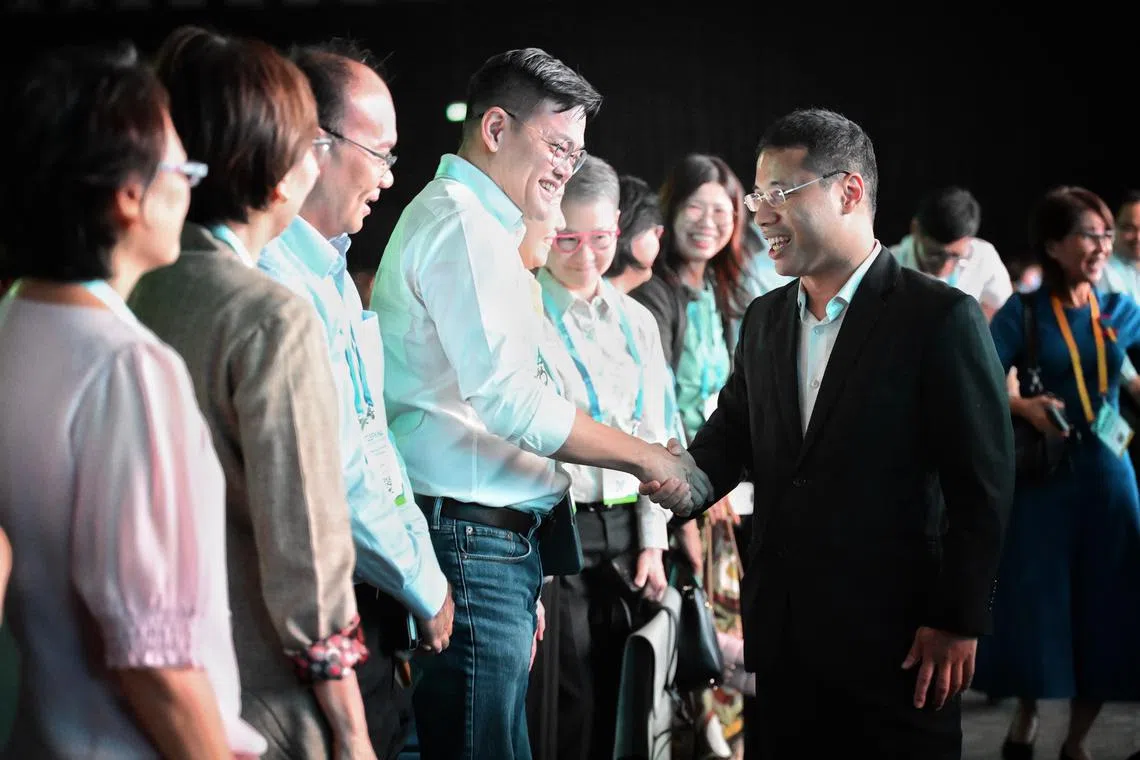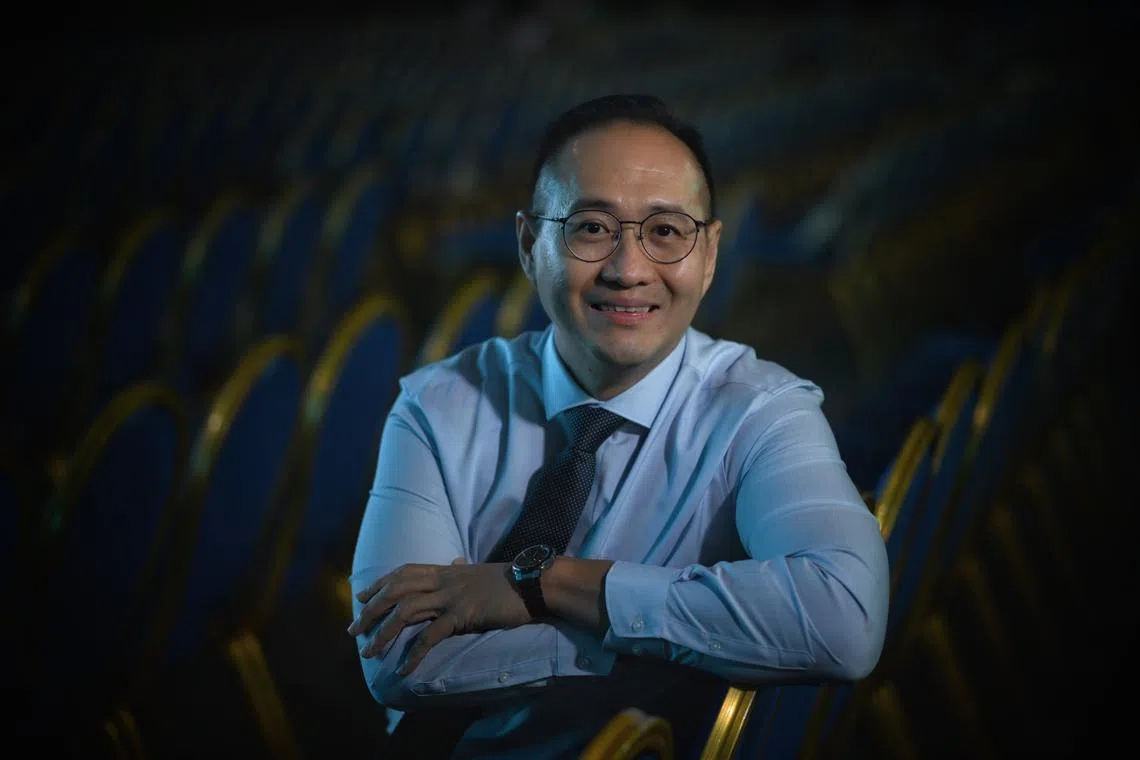How a single spreadsheet saved each Pei Hwa Secondary teacher 60 hours of admin work a year
Sign up now: Get tips on how to help your child succeed

Ms Shalini Tashnamurthi and Mr Yeo Wei Qiang Kenneth received the Minister’s Innovation Award on June 3 at the Teachers’ Conference and Excel Fest 2025.
ST PHOTO: CHONG JUN LIANG
Clay Lim
Follow topic:
SINGAPORE – Previously, teachers at Pei Hwa Secondary School would have to navigate multiple systems to gather information about students, as they prepared for parent-teacher meetings.
Now, they simply select a class and register number in the school’s holistic student development dashboard, which presents consolidated data from the Ministry of Education (MOE), internal school documents and post-secondary admission booklets – all in a single Excel spreadsheet.
The dashboard is estimated to have saved each teacher about 60 hours of administrative work yearly.
The project was one of 11 that received the Minister’s Innovation Award on June 3 at the Teachers’ Conference and ExCEL Fest 2025. The event is organised by MOE for educators to share insights and practices.
The award recognises innovations with large-scale impact across the education system.
The online dashboard is the work of Mr Kenneth Yeo Wei Qiang, Pei Hwa Secondary’s subject head of personal and aesthetic development, who built the system in-house for his class in 2018 with basic Microsoft Excel skills gained during his time as an auditor.
Later on, Ms Shalini Tashnamurthi, the school’s head of department of infocomm technology, was roped in when the school saw the potential of Mr Yeo’s creation and decided to make it a tool available to all its teachers.
All 88 teachers at Pei Hwa Secondary currently use a revamped version of the dashboard, which has also been shared with other schools keen to adopt the idea.
The dashboard maps out potential educational pathways for students, by matching their grades with academic prerequisites across post-secondary institutions.
This helps teachers to give students and parents relevant information about which institutions the students qualify for, given their current grades and level of co-curricular activity involvement.
Mr Yeo said: “At the start, we mainly showed academic grades, so teachers have suggested that we should include non-academic information as well. Over the years, we have also improved the user interface, to make it easier for teachers to get the information they need.”

Education Minister Desmond Lee shaking hands with participants at the Teachers’ Conference and ExCEL Fest 2025 on June 3.
ST PHOTO: CHONG JUN LIANG
At the June 3 event, 37 individuals received the MOE Outstanding Innovator Award for being key influencers of innovation.
One of them is Mr Daniel Chua Boon Hwee, head of department of student management at Chongzheng Primary School, who gamifies learning experiences for students.
When he started out as a mathematics teacher in 2010, he realised that many of his students were afraid of the subject as they did not do well in it.
In 2017, inspired by YouTube videos on game-based learning, Mr Chua decided to introduce play as a pedagogical tool.

Mr Chua Boon Hwee Daniel, who gamifies learning experiences for students, received the MOE Outstanding Innovator Award.
ST PHOTO: CHONG JUN LIANG
He redesigned his lessons, so that students would overcome obstacles in the form of assignments that tested their mathematical understanding, following a storyline.
He turned the physical classroom into an escape room, dividing it into four “towns”, each linked to an assignment from the Singapore Student Learning Space – an online platform used by schools. As students completed each task, they unlocked a code for that town, progressing towards an ultimate challenge.
He also drew inspiration from Pokemon Go, casting students as Pokemon trainers to battle “gyms” to earn badges in their learning journey.
He updates storylines frequently, incorporating games that are popular among his students.
In 2024, Mr Chua went one step further – he developed a spreadsheet for students in his class to record their performance in online maths assignments. The students’ achievements are represented by “artefacts”, which can be used to “upgrade” virtual pets when enough are collected.
Over time, Mr Chua has observed that his students are more motivated in their work and more enthusiastic about participating in class.
He said: “Gamification allows students to risk failing in a fun and safe way. Students are also immersed in the storyline, making it personal and appealing for them.
“The digital citizens of their generation grow up with mobile devices with engaging gaming elements. Hence, it is also important to craft an immersive storyline to hook them in the lesson.”
Correction note: In an earlier version of this story, we said that 10 projects received the Minister’s Innovation Award. This is incorrect. It should be 11 projects.

